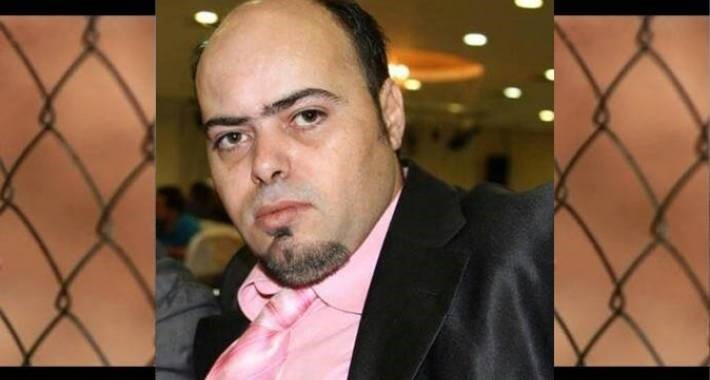Amjad Safdi, 39, was an attorney and a Jerusalem resident. He was arrested on 6 March 2014 on the suspicion of passing messages from prisoners to the Hamas leadership. Safdi was held and interrogated in Jerusalem’s Russian Compound detention center for close to 50 days. He died on 29 April 2014, five days following his release to house arrest. Adv. Safdi was interrogated together with other attorneys who were arrested and interrogated in the case, yet he denied the charges and claimed that provide legitimate legal services to his clients.
the course of his arrest family members suspected that he was being tortured and being held under especially harsh condition. Attempts by attorneys from the Public Committee against Torture in Israel (PCATI) to visit him failed because of bureaucratic difficulties. On 24 April he was released from the Ramon prison to house arrest under restrictive conditions. His family reported on a significant worsening of his emotional condition because of the detention and interrogation conditions. He was found dead in his Old City home, apparently a suicide, on 29 April 2014.
Dr. Zeev Weiner, a psychiatrist and volunteer with Physicians for Human Rights adds that “The death of Amjad Safdi proximate to an Israel Security Agency (ISA) interrogation could be a harsh symptom of Israel’s interrogation policy. It raises difficult questions regarding the use of torture in defiance of the law and on the culture of impunity for torturers in Israel. Every arrest and interrogation is naturally a stressful situation for any person. Unusual emotional or physical pressure, threats, cruel treatment, humiliation, causing physical or mental exhaustion, sleep deprivation, prolonged questioning for many hours, solitary confinement, lead to helplessness, despair and destruction of the person beyond any reasonable need in such a situation and can certainly lead the victim of such treatment to suicide. Interrogational torture is not only counterproductive but can also cause unreasonable harm to the body and psyche of the interrogee and must be condemned in every way, just as the Supreme Court has done.” In light of the suspicion of the use of torture during Mr. Safdi’s interrogation the Human Rights organizations wrote to the Attorney General demanding that he launch an immediate investigation into the circumstances of Safdi’s death and an investigation into the claims that he was tortured under interrogation.
Related:
http://www.phr.org.il/default.asp?PageID=116&ItemID=1910



